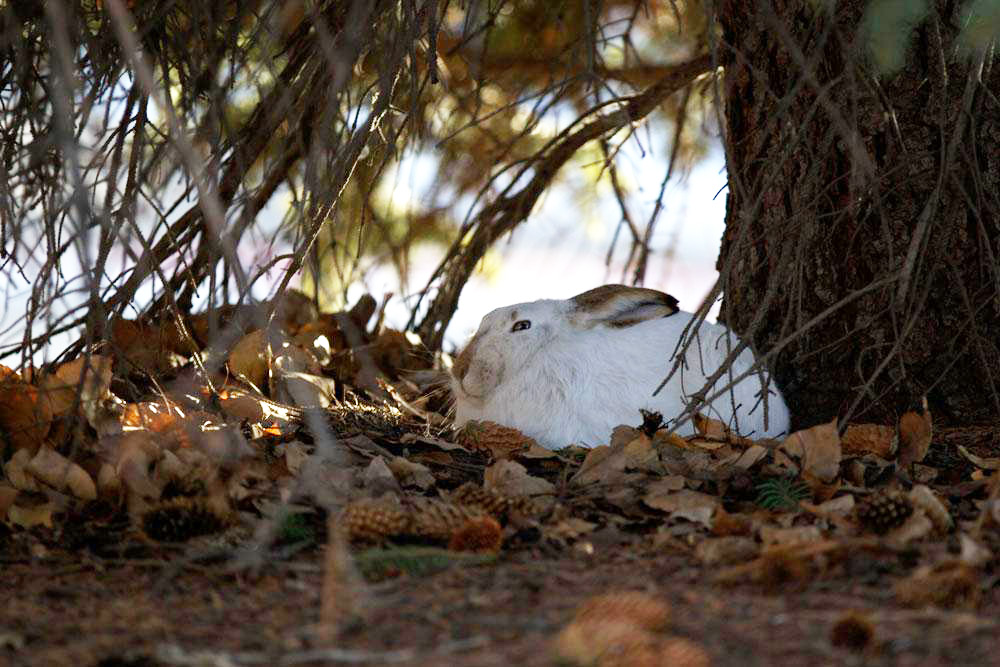
Residence students hunt campus rabbits after dining centre price hike
By Melanie Woods, October 6 2015 –
Campus Security responded to reports of an organized group of residence students hunting rabbits on campus last week . Roughly two dozen students were gathered around a small campfire behind the Olympic Oval. Campus security found them roasting the rabbits on a spit and tearing into the cooked flesh with the savagery of feral beasts.
Security immediately apprehended the students, citing several regulations in place that protect the rabbits.
“The kids should know these rabbits are formally known as the Taylor Rabbits of Campus Synergy, and are protected by a $100-million endowment from the Taylor family,” Campus Security chief Brock Nickles said. “There are serious fines if they are so much as spooked, let alone hunted down and eaten.”
Remnants of campfires and small traps constructed from residence services-branded drawstring bags suggest the group was the most recent of a number of organized hunting parties.
Students claim the hunts are a response to overpriced dining centre food.
“I can’t afford to put thousands of dollars into a meal plan and then spend $15 of it on every meal I eat,” said first-year engineering student Jack Smith. “I might as well save the money and take advantage of the free protein running around outside my window.”
Smith initially joked about hunting the rabbits for food. The response from his peers was so overwhelmingly positive he made it a formal event.
“There was a Facebook group and everything,” Smith said. “We have t-shirts coming next week.”
The students reportedly used broken Barefoot wine bottles leftover from Thursden pre-drinking celebrations as weapons.
“We’re not allowed beer bottles in residence,” Smith said. “But no-one said anything about wine. For $8 you can get a whole bottle of shitty rosé and the means to hunt and kill your every meal.”
Second-year economics student Sadie Jenkins said the event is a logical response to the financial pressures facing university students.
“I heard stories of poor university students becoming vegetarians simply because they couldn’t afford to buy meat,” Jenkins said. “This ritualized slaughter is a great idea to maintain a balanced diet without going into more debt.”
Students combine the spoils of their hunts with other residence staples in order to craft meals without having to use the dining centre.
“There’s this girl on my floor who makes the best microwave rabbit ramen,” Jenkins said.
Jenkins also claims the rabbit hunt is a zero-waste operation.
“I use the skins to keep warm on cold nights, since the windows in residence aren’t properly sealed,” she said. “I put in a maintenance request at the start of the term and they still haven’t fixed it, so I need to be resourceful. I also have a lucky rabbit’s foot for all of my exams now.”
Critics of the hunts have expressed worry the hunt could lead to a decline in the rabbit population, creating a negative impact on the campus ecosystem.
“With the introduction of a new peak predator like an armed first-year residence student, the entire ecosystem is forced to adjust,” ecology professor Kelly Windhurst said. “University administration may have to consider culling the predator population in order to protect the rabbits and maintain ecological integrity.”
University administration has so far not released any plans concerning culling the population of first-year students in residence.
